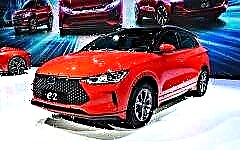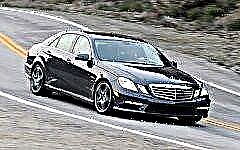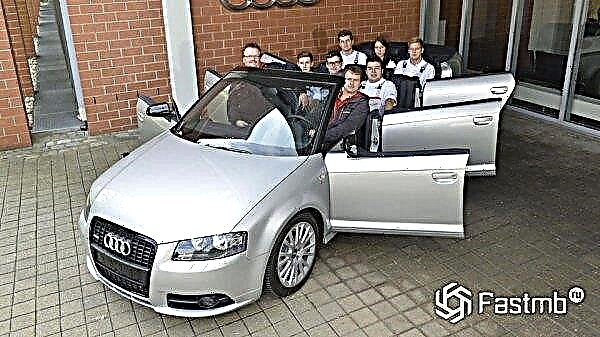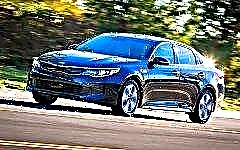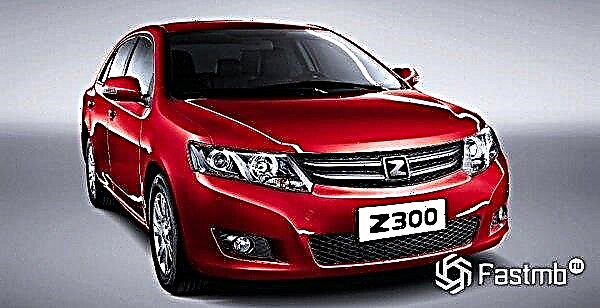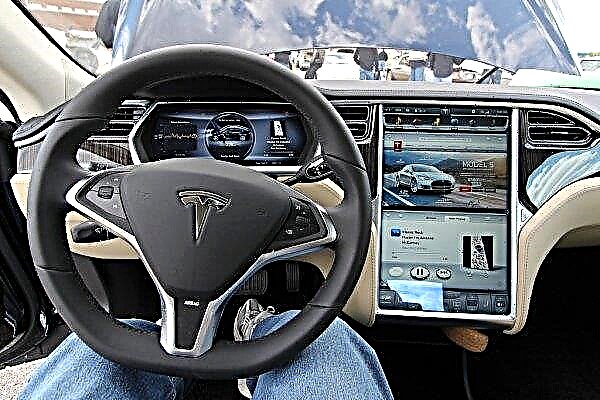
The modern way of travel implies not only speed, but also convenience, and most importantly - environmental requirements, perhaps therefore, the desire to create a new generation car that meets these qualities resulted in such a novelty as an electric car.
But as we know: everything new is well forgotten old. The concept of "electric car" has been known in our country since the middle of the nineteenth century, and it appeared back in 1899. It was designed by Ippolit Romanov, borrowing the idea from the Americans. Well, finally, the time has come, and they are now seen by many as the transport of the future. A large number of new products in this area have appeared recently, and their appearance and technical characteristics are becoming more and more attractive, electric motors are smaller and more powerful. Read also the review of the new Mercedes-Benz EQC 2018-2019.
Electric vehicle sales and prices

Whatever one may say, but sales of electric vehicles are gradually growing, although many manufacturers have some problems with sales. Such well-known firms as Nissan (Leaf electric car) and Tesla (Model S) sell the most of these cars: 12,000 and 10,000, respectively, and the rest sold at most a hundred of these cars in the first six months of 2013. Although the problem of poor sales is largely in the price, automakers are bending it too high. Most of the sales are in the United States (increased from 7,000 to 25,000). The same interest in ecological cars is also in Europe, although Renault ZOE cars have achieved greater success here, the cost of which in the UK ranges from € 13,650 (€ 16,000 or $ 21 000).
Prices for electric vehicles are gradually decreasing, but as you can see, this is due, first of all, to the introduction of new, cheaper batteries. For example: Nissan Leaf costs $ 25,000, and Tesla Model S costs from $ 60,000. Some manufacturers offer discounts on promotions to save sales, but they go for a forced temporary phenomenon, otherwise some cars would simply not be sold. Some public charging stations offer recharging for free, while others are trying to rip off more money, explaining such a fee by the convenience and high service of their service staff. Soon they promise to organize inductive charging plates built into the floor or road.
1. Nissan Leaf

2. Tesla Model S


3. Renault Zoe

Advantages and disadvantages of electric vehicles

Let's define the cons of electric vehicles:
- not everything turns out so smoothly, namely - the car requires quite frequent recharging, and in our transport environment this is almost not thought out in any way;
- it takes a long time to fully charge, namely 8 hours for a 100% charge, although the Volkswagen e-Up! in 30 minutes it can replenish its battery charge by 80%. And in the USA there are special electric gas stations that allow you to charge a car in 15–20 minutes;
- there is a time limit on the power reserve, which determines the limit between recharges - 100–160 km. Tesla Model S can travel up to 460 kilometers;
- prices for an electric car are almost, or even exactly twice as high as a similar gasoline "horse", which also speaks not at all in favor of an electric car;
- some of the energy can be wasted idly by standing in traffic jams or at traffic lights, as well as climate control, the use of an audio system and heating, all this can lead to an unforeseen situation;
- the feeling of worry about the range does not leave anyone in a calm state;
- if you forgot to put the car to recharge in the evening, then in the morning you will have to take a walk or use public transport;
- batteries often deteriorate and fail unexpectedly, and public chargers break or, specifically, are busy;
- cheap ways of obtaining sufficient electricity for machines have not been thought out;
- electricity at home is also not free - to charge an electric car, you need to spend an average of 20-50 kilowatts of electricity.
Let's define the pros:
- fuel economy;
- environmental friendliness of using the machine;
- in terms of functions and their characteristics, they almost do not differ from ordinary cars;
- the ability to recharge the car at home;
What is the future of these machines?

Since a huge number of developments are underway in this area, the time is not far off when an electric car will become an affordable and highly maneuverable car. The cost of the main expensive organ may soon drop several times (from $ 500-600 per 1 kilowatt-hour to $ 160 by 2025). Modernization of production technology, development of new standard equipment - all this will increase the quantity and quality of produced electric vehicles, will make it possible to reduce their selling price. The cheaper cost of lithium-ion batteries will lead to a sharp drop in prices and an increase in sales, which means such models as: Nissan Leaf, Tesla Model S, Ford Focus EV, Mitsubshi MiEV, Toyota RAV4 Ev, Honda Fit EV, Smart For Two ED, Chevroet Spark Ev and others will become more popular. It has already become known that the Tesla Model E will already be on sale for $ 35,000 in 2015, and the BMW i3 will be the first mass-produced car of this category, because they decided to use carbon fiber in the production, which significantly reduces the weight of the car and, accordingly, electricity consumption.
There is another option, and it also claims for the future - this is a hybrid installation, which has become quite actively popularized in the car market of manufacturers. The name speaks for itself - this car has a combination of two engines: electric and gasoline. It all depends on the load, they can work together or separately. In this system, the electric motor will, directly, be powered by a storage battery, which is recharged when braking or moving from the ICE generator itself.
Positive characteristics should be noted: less harmful emissions, significant fuel economy, excellent dynamics. But negative sides are also present, they can turn into troubles when getting into a traffic jam and driving on the highway, when there is no need for braking - there is no accumulation of energy; constant shutdowns of the motor can lead to unstable operation and rapid cooling of the converters. But there is no turning back, history is moving forward and gives the green light to new generations of the car, because sooner or later it will be necessary to end up with purely gasoline engines, after all, it is not endless reserves of fuel and rapidly growing prices for it, environmental problems on Earth - all this pushes to search alternative, and we have no other choice yet! Electric cars are the future that is no longer sunburned.

